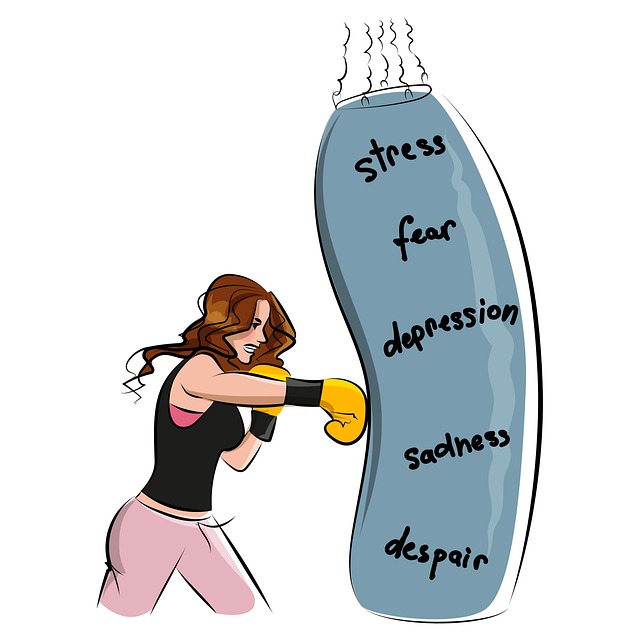Creating a mental wellness podcast series for young children requires age-appropriate content focusing on simple topics like emotions, stress, and self-care, using stories, songs, and interactive segments. Key themes include self-care routines, mindfulness practices, and family bonding to foster emotional well-being. For older audiences, direct conversations, expert interviews, and journaling exercises address anxiety, emotional regulation, couples communication issues, social skills, burnout prevention, and public awareness campaigns related to therapy for young children couples communication issues. Playful storytelling and music enhance engagement across age groups, making mental wellness accessible and appealing.
“Unleash the power of audio for mental wellness with our comprehensive guide to podcast series production. From crafting engaging content for young children, tackling communication issues in couples, to mastering production techniques for top-notch audio, this article has it all.
Learn how to adapt topics like anxiety and emotional regulation for different age groups while incorporating playfulness and storytelling. Discover strategies for improving relationship dynamics through effective communication and real-life examples.
Additionally, explore essential production tips, from equipment selection to marketing techniques, ensuring your podcast reaches its target audience, including those seeking therapy for young children and couples communication issues.”
- Choosing the Right Format and Topics for Young Children's Mental Wellness
- – Identifying key areas of mental wellness relevant to children (e.g., anxiety, emotional regulation)
- – Adapting content for different age groups (preschoolers vs. school-aged kids)
- – Incorporating playfulness, storytelling, or music to engage young listeners
Choosing the Right Format and Topics for Young Children's Mental Wellness

When creating a mental wellness podcast series tailored for young children, selecting the appropriate format and topics is paramount to ensuring its effectiveness. Given the unique cognitive and emotional development stages of this audience, simple, relatable, and engaging content is key. Consider incorporating interactive segments, stories, and age-appropriate analogies to convey complex concepts like emotions, stress, and self-care.
Focusing on themes such as self-care routine development for better mental health and inner strength development can be highly beneficial. Discussing simple mindfulness practices, active listening techniques between parents and children, and strategies for managing anxiety can help young listeners build healthy coping mechanisms. Additionally, addressing therapy for young children couples communication issues indirectly through episodes that promote family bonding and open dialogue can create a supportive environment for mental wellness.
– Identifying key areas of mental wellness relevant to children (e.g., anxiety, emotional regulation)

When creating a podcast series focused on mental wellness for children, it’s essential to identify and address key areas that significantly impact their overall well-being. Common issues such as anxiety and emotional regulation are often at the forefront, given their prevalence in young minds. Anxiety disorders can manifest early, affecting a child’s ability to learn, socialize, and manage daily tasks. Equally important is teaching emotional regulation skills, helping children understand and control their feelings effectively. This not only fosters better mental health but also strengthens their resilience.
Additionally, couples communication issues often find their way into the lives of children, either directly or indirectly. Healthy marital relationships serve as a positive model for children to emulate in their own interactions. Podcasts can offer guidance on improving parental communication, which is crucial for fostering secure attachments and promoting emotional well-being in children. Other relevant topics include social skills training, burnout prevention, and public awareness campaigns development, all of which contribute to creating a supportive environment for mental wellness to flourish.
– Adapting content for different age groups (preschoolers vs. school-aged kids)

Creating content for a mental wellness podcast series that resonates with different age groups requires tailoring and adaptation. For preschoolers, stories and songs can be powerful tools to introduce concepts like emotions and coping skills development. Using simple language, vivid imagery, and playfulness helps engage young minds while addressing issues such as anxiety or stress in an age-appropriate manner. On the other hand, when targeting school-aged children and adolescents, conversations around therapy for young children and couples communication issues can be more direct and insightful. Incorporating real-life examples, expert interviews, and interactive segments encourages open dialogue about mental health and provides valuable guidance on navigating challenging situations.
The podcast series production should also offer mental wellness journaling exercises to reinforce learning and self-reflection, especially for older listeners. By adapting content for these distinct age groups, the podcast becomes a versatile resource that caters to both younger audiences developing emotional intelligence and older children and teenagers seeking practical tools for coping skills and mental wellness journaling exercise guidance.
– Incorporating playfulness, storytelling, or music to engage young listeners

Incorporating playfulness, storytelling, or music can significantly enhance the engagement of young listeners in mental wellness podcasts. For content geared towards therapy for young children and couples communication issues, these elements act as powerful tools to make complex topics accessible and relatable. Playful and story-driven formats allow younger audiences to connect with the material on a deeper level, making stress reduction methods and compassion cultivation practices more appealing and easier to understand.
By weaving narratives and melodies into podcast episodes, creators can capture and maintain the attention of young listeners. This approach not only makes the content more enjoyable but also facilitates the subtle introduction of important concepts and discussions related to couples communication issues. Through these creative avenues, public awareness campaigns development around mental wellness can be effectively advanced, ensuring that both children and adults have access to valuable resources for improving their well-being.
Producing a mental wellness podcast series for young children is an innovative way to introduce important topics like anxiety and emotional regulation. By tailoring content for different age groups, leveraging playfulness, storytelling, and music, creators can effectively engage young listeners while addressing key areas of mental wellness relevant to their development. Incorporating interactive elements and practical strategies, these podcasts can serve as a valuable supplement to therapy for young children, even helping to improve couples communication issues that may arise from stress. Through thoughtful format choices and engaging topics, podcasters can make a profound impact on the mental health and well-being of the youngest among us.













